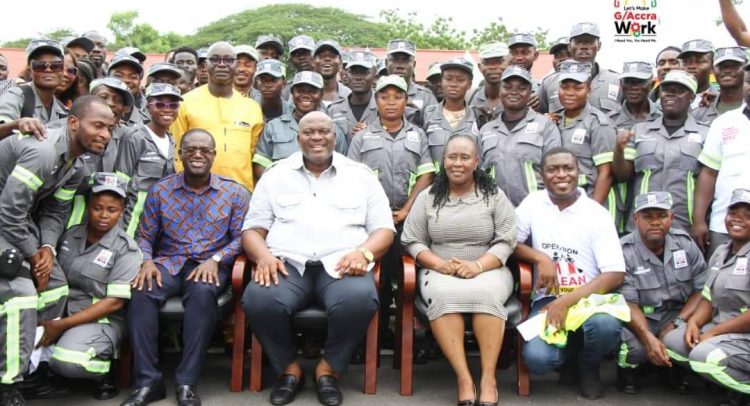With the first batch of trainees for the City Response Team passing-out function now accomplished and the personnel deployed at various duty posts in the city, the Greater Accra Regional Minister, Henry Quartey, has cause to be excited.
His dream of re-introducing the “samasama” or sanitary inspectors of the colonial days and early part of independent Ghana has borne fruits.
Residents of Accra, especially the fastidious, would now set their sights on the personnel to determine whether the template is worth the investment and time.
It is our hope that being the first batch of the project, the response team would live up to the expectation which informed the concept.
Let there be no reports of response team personnel assaulting the public in their areas of operation. We believe that there are clear-cut rules for dealing with difficult residents, who would definitely resist the necessary changes the regional minister and the rest of his compatriots seek to bring about in a city, which is ridden with filth and indiscipline.
The regional minister was on point when he demanded discipline from the trainees during his speech because of possible incidents and how these are resolved.
We recall when during his engagement with the media at the Movenpick Hotel in Accra, he said personnel of the rapid response team are made of Ghanaians with no political tag. This is the tangent on which the personnel should work and with strict adherence to the rules of engagement.
The standards of discipline instilled in them during the month-long training under the military should be visible in the way they conduct themselves.
The establishment of a centre which would receive calls about situations requiring intervention from the response team is a welcome development. The efficient coordination between the rapid response team and this centre would go a long way to define the success or otherwise of the project.
As the days elapse, let the Regional Coordinating Council (RCC) think out improvements in the terms of reference of the team after periodic monitoring and evaluation so that the neat Accra we envisage would not be long in coming.
Those who have contributions that would ensure the success of the project of changing the face of Accra from a filthy city to a neat one where residents, motorists and pedestrians are disciplined and live up to their civic responsibilities, should proffer these in responsible fashions.
Disparaging remarks are not what we need now but those which would improve upon the project. This project should work.


